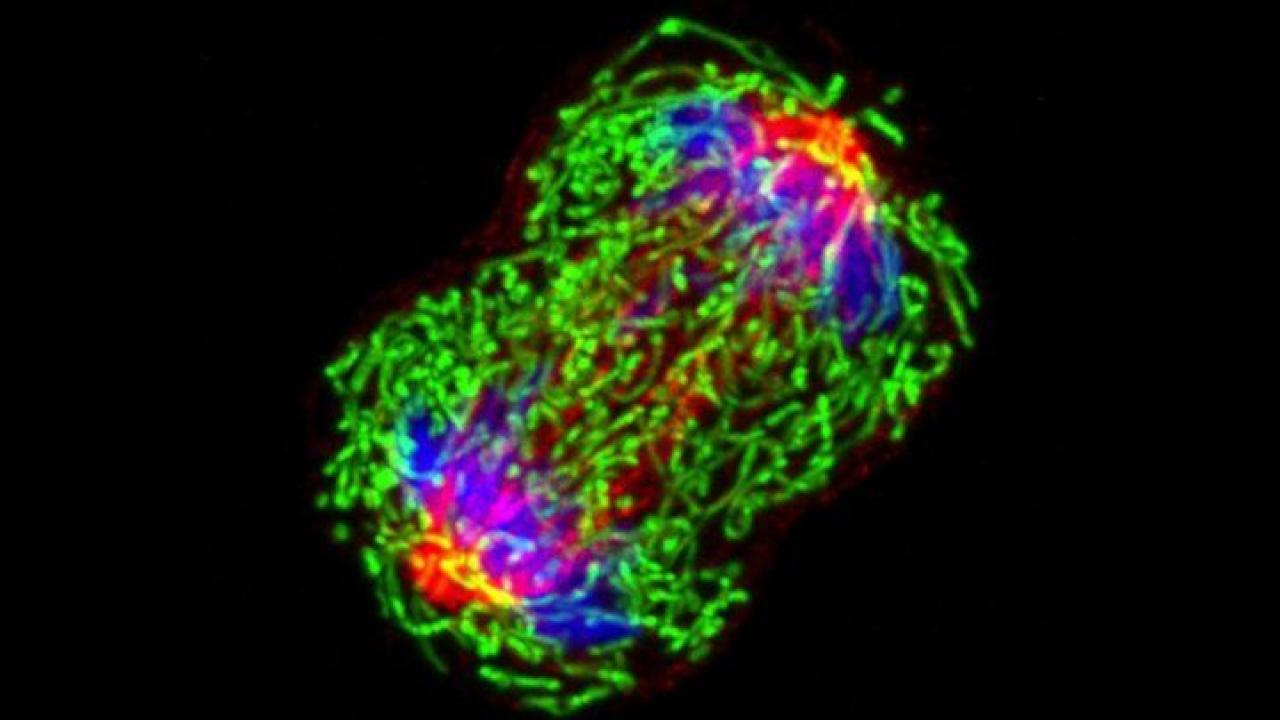
A triple-negative breast cancer cell in metaphase during cell division. Image by National Cancer Institute
Research scientists and statisticians from UC San Francisco have developed improved biomarker classifications as part of their research results in the I-SPY 2 trial for high-risk breast cancer patients. The new cancer response subtypes reflect responsiveness to drug treatments and are intended to help clinicians be more precise in how they target therapies.
Using the I-SPY 2 (Investigation of Serial Studies to Predict Your Therapeutic Response with Imaging And moLecular Analysis) trial’s comprehensive multi-omic molecular characterization of all tumors and the diverse array of drugs targeting different molecular pathways, the I-SPY 2 researchers were able to access the associated datasets to create breast cancer subtypes to match modern treatments.
The researchers, whose findings were recently published online in Cancer Cell, show that by combining predictive biomarkers to create response predicting breast cancer subtypes, these subtypes can then be matched to the most effective modern treatments. The best subtyping schemas incorporate Immune, DNA repair, Luminal, and HER2 phenotypes, Treatment assignment using these response predictive subtypes may improve the efficacy of the treatment and patient outcomes.
I-SPY 2, sponsored by Quantum Leap Healthcare Collaborative (QLHC) who manages all of the collaborations among academic and industry partners, announced that these new subtypes will move forward in the next iteration of the trial I-SPY 2.2.
Using the I-SPY2-990 mRNA/phospho-protein Data Resource from nearly 1000 patients who participated in 10 arms of the I-SPY 2 TRIAL, researchers evaluated 27 predictive I-SPY 2 qualifying biomarkers which led to the development of a response-predictive subtyping schema for prioritizing therapies. First authors Denise Wolf, PhD, and Christina Yau, PhD, both of UCSF, used gene expression, protein levels and response data from 10 drug-arms of the I-SPY2 neoadjuvant trial to create new breast cancer subtypes that incorporate tumor biology beyond clinical hormone-receptor (HR) and HER2 status.
“Use of these response predictive subtypes can be used to guide treatment prioritization, will increase response, and will revolutionize the way in which physicians treat their patients,” said Laura van ‘t Veer, PhD, Co-Director of the UCSF Breast Oncology Program and lead scientist for the I-SPY 2 biomarker studies.